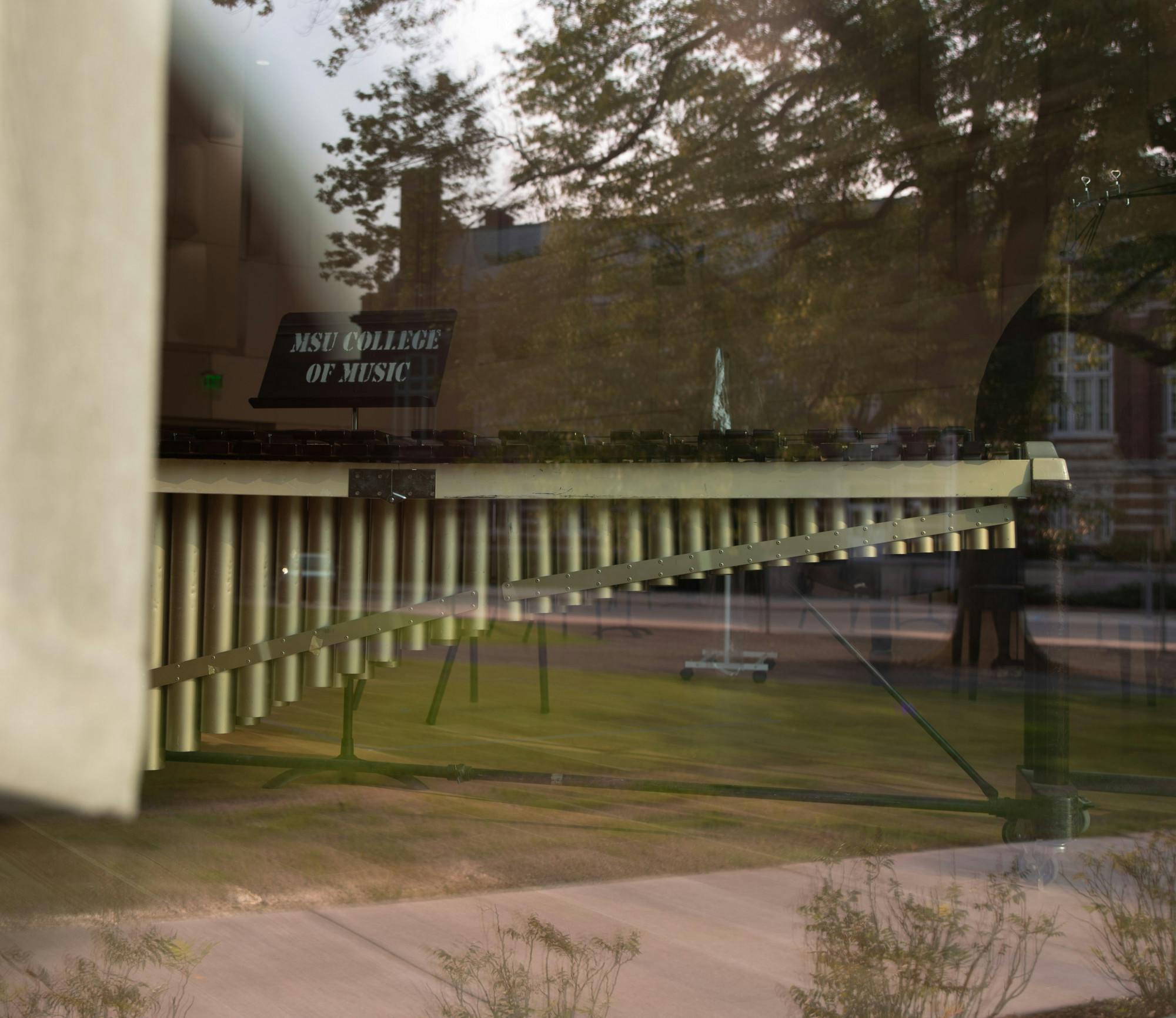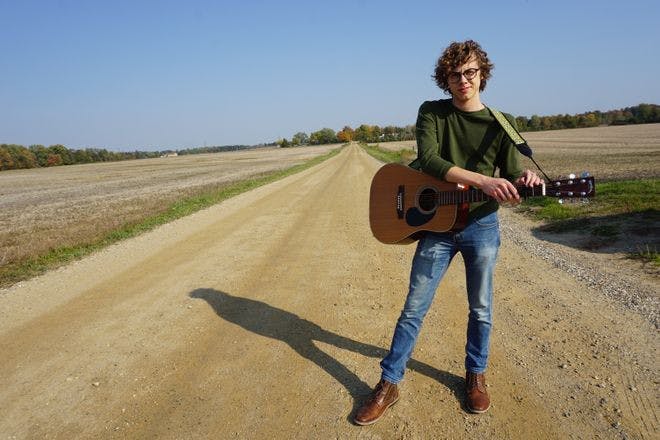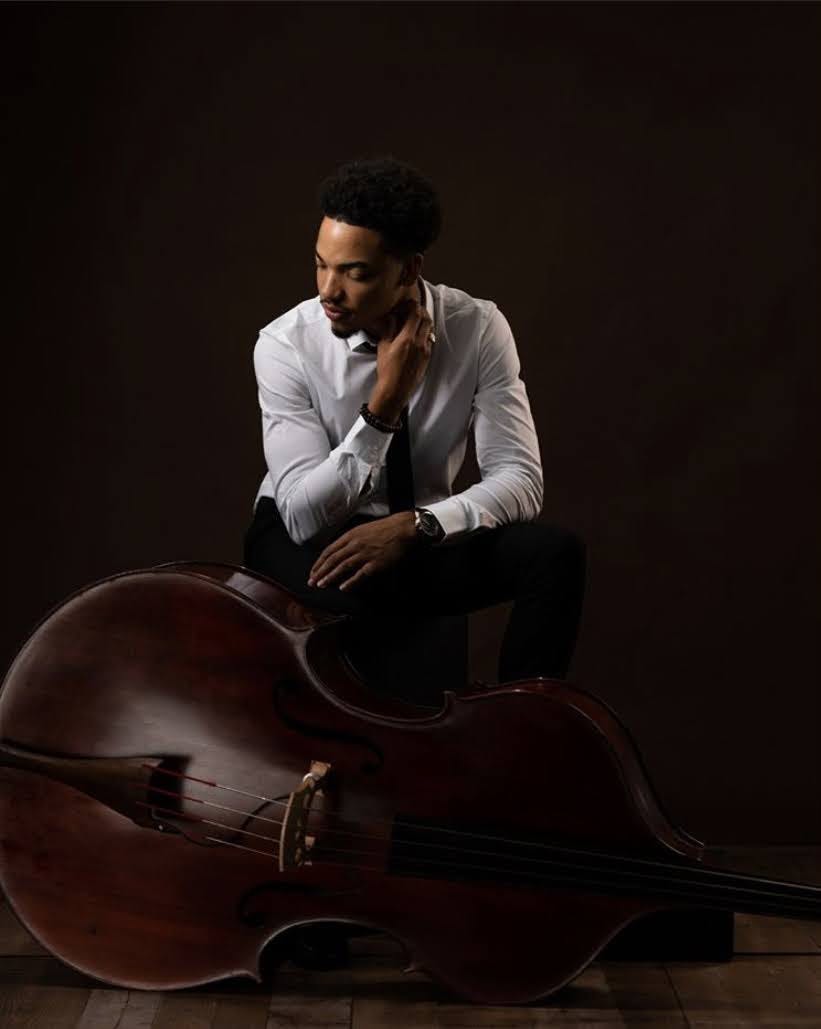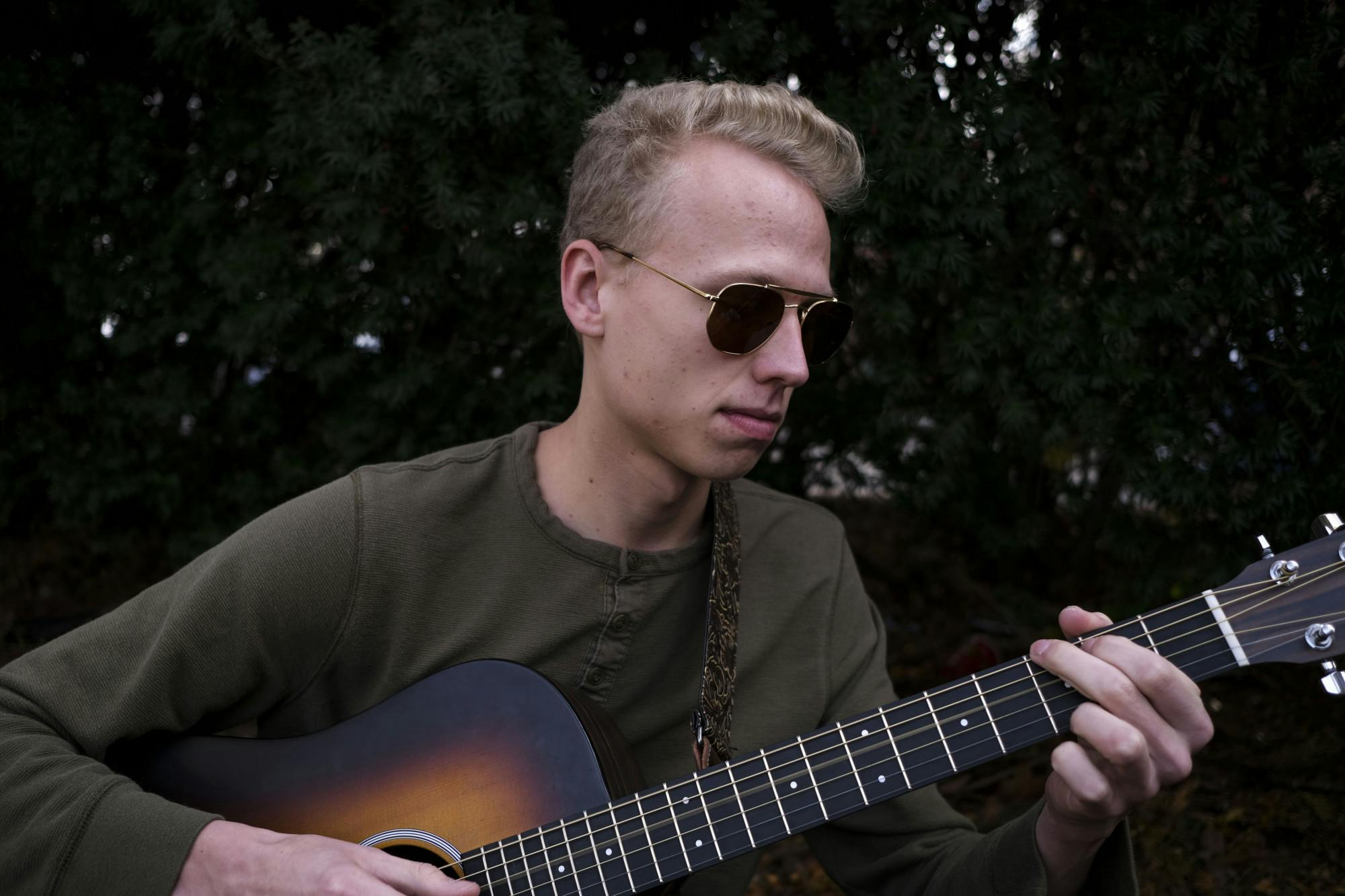Three different musicians. One common pandemic.
COVID-19 introduced a new way of living life through computer screens and, along with it, an unusual amount of downtime.

Empty practice room inside Billman Music Pavilion at Michigan State University's College of Music while students are taking online classes on Thursday, Sept. 17, 2020. (Photo by: Di'Amond Moore)
Three different musicians. One common pandemic.
COVID-19 introduced a new way of living life through computer screens and, along with it, an unusual amount of downtime.
But for musicians Jonathan Townley, Brandon Rose and Zach Perpich, it’s given them more time to kick back, play their instruments and enjoy the music they love.
“It was sort of as a way to deal with those emotions, to deal with the grief and the anxiety," Townley said.
Townley, an East Lansing native and a junior at Kalamazoo College, has been around music for most of his life.
“In East Lansing, there’s a place called the MSU Community Music School where people from the community can take lessons, … so when I was little, my parents put me in piano lessons there and I really hated it,” Townley said. “I kept singing along with the songs I was supposed to be learning, and my piano teacher said that I should do the choir there. And so then from like third grade on, I was doing the MSU Children’s Choir.”
In high school, Townley learned how to play the upright bass in his school's orchestra. He now sings in both the choir and an a cappella group at Kalamazoo College. Yet, he said his desire to perform individually grew at home.

“I guess the first time I really started doing stuff individually, I decided to try to pick up the guitar,” Townley said. “We had this old one laying around the house my dad had got at a pawn shop back when he was in college thinking he was going to learn to play but never had. So, I started trying to watch YouTube videos and try to teach myself how, and that’s how I did it really.”
Watching YouTube videos quickly turned into writing songs, and those songs — which he categorized as alternative folk, similar to those of Bob Dylan or Jack Johnson — would later turn into an album titled “It Was a Privilege to Know You When You Were Shorter.”
By a push from his family, Townley released his nine-song album Oct. 23, 2020. With inspiration driven from thoughts about life and death, thoughts about his own humanity while living with asthma during a time when a serious respiratory virus has swept the nation, Townley described his music on this album as, “healing, joyful, as well as grieving.”
One of the songs on the album, “Silent Spring,” focuses on the death of his grandfather, a Methodist minister, who died during the beginning of the pandemic.
“I wrote it pretty soon, like a month or two after he died, and it was about how on the day of his death we weren’t able to really know what to do,” Townley said. “It was so early on in the pandemic — there was going to be no funeral, there was going to be no sort of service. But, we drove the hearse out through his farm of blueberries that he had grown all his life, and as we were leaving through his community, we passed his church, and the parking lot was full of cars of community members who had come to watch the hearse pass by. So, even in this time where we are so anxious, where we are so aware of our own mortality, we still can show one another love. We still can show one another compassion.”
For Townley, music has not just been something to do in his free time. It’s been a way to cope.
“Especially (in) the early pandemic when everything was so uncertain, everything was so stressful, there was so much grief everywhere,” Townley said. “It was sort of as a way to deal with those emotions, to deal with the grief and the anxiety.”
“It just shows that even through challenging times where it looks like there’s not a lot of opportunity out there, you can start making opportunities for yourself," Rose said.
If you ask any jazz musician, jazz is more than a series of notes that flow smoothly like honey. It has a deep intrinsic value to it that many artists hold dear. For Rose, a recent MSU graduate, the significance of jazz is ever-changing.
“I’d say right now I’m still in the discovery phase of really figuring out what jazz means to me,” Rose said. “I know that I appreciate jazz, and I appreciate the history, just looking at all of the stories linked to jazz and just how it’s Black music. … A lot of people think jazz is dead, but jazz is still a prominent genre of music. I mean, it’s forever evolving. So, I think I’ll learn more about what it means to me as I continue to dive into it and figure out what to say through the legacy and lineage of jazz.”

Support student media! Please consider donating to The State News and help fund the future of journalism.
Rose came to MSU as a jazz studies major, using his more than 10 years of experience with the electric bass to learn the upright bass.
“It was kicking my butt, and I really wanted to quit,” Rose said. “I saw a lot of my friends who had been playing upright bass for some years now, and they were making just these amazing moves up into their career and everything. And I’m just over here kind of struggling.”
During that experimental time, Rose discovered a passion for songwriting and beat production, fueling a desire to create his own brand, music he now describes as a fusion between jazz and R&B.
“I want my music to be appreciated by musicians and loved by my generation of people,” Rose said. “And a lot of young people can’t really get with straight ahead jazz or traditional jazz, but if you mix it in into something that they’re used to hearing … they’re more able to receive it.”
Rose’s personal revelation to produce his own sound carried him the rest of the way through his undergraduate degree, where he graduated in 2020. Little did he know he'd be graduating into a global pandemic.
Yet, that hasn’t stopped him from chasing his dream. He released his album “Transition” on June 19, 2020. He started with seven song titles and cranked out lyrics to them in 14 days, contributing to the 10-track collection.
COVID-19 hasn’t impacted the gigs Rose has been able to book. He said the longest he’s gone without one has been two weeks. He’s traveled anywhere in the country from Grand Rapids, Michigan to Houston, Texas.
The opportunities are there for Rose, but they look different these days. Since the beginning of the pandemic, Rose has live streamed concerts, taught music lessons and written songs for others. He was even featured in MSU’s Impact 89FM “Comma Concert” series, where he performed a set in a barbershop while a customer was getting a haircut.
“Who would think to have a concert in a barbershop while people are getting their haircut? Like, that’s just really different,” Rose said. “It just shows that even through challenging times where it looks like there’s not a lot of opportunity out there, you can start making opportunities for yourself.”
"It’s given me a chance to learn more, get better," Perpich said.
COVID-19 has been a way for many to capitalize on newfound leisure time. When it comes to music, marketing senior Perpich already knows how to take advantage of that kind of time. It started years ago.
“It’s kind of funny,” Perpich said. “So, I babysat these kids in the summer during high school, and they would not wake up till like 10 or 11 (a.m.) every day. And, I was just kind of sitting in their living room, and they had a guitar there, and I was like, ‘You know, I love music. Why not try to figure it out?’”

A fondness for listening to music, specifically country artists like the Zac Brown Band and Eric Church, grew into an aspiration to play. Perpich carried a self-driven motivation to perform that he said those artists inspired.
With support from family and friends, Perpich decided to share his music — on Twitter, Instagram and even live at Dublin Square in East Lansing during the fall 2020 semester.
“Dublin was my first show that I played at a bar,” Perpich said. “I played there two weeks in a row, and then COVID hit. Some new regulations took that opportunity away, I guess. But, it was awesome. It was great to especially play in front of my friends and everyone I know up here, for them to come check it out. It was awesome for them to show up, and it was a super fun time.”
Perpich plays covers of songs and writes his own music. He said he’s not sure how far he wants to take music after graduating this spring. Playing at Dublin Square was a great experience as is, he said, noting that he’d like to repeat that in the future. For now, though, Perpich said he’s just using music to pass the time.
“I think it’s just been something I’ve really done a lot more of because of COVID,” he said. “It can get boring when you’re not allowed to do anything. So, I think music, especially being able to play music, has been something to keep me very occupied during this time. It’s given me a chance to learn more, get better.”
This article is part of our MLK Day print issue. Read the full issue here.